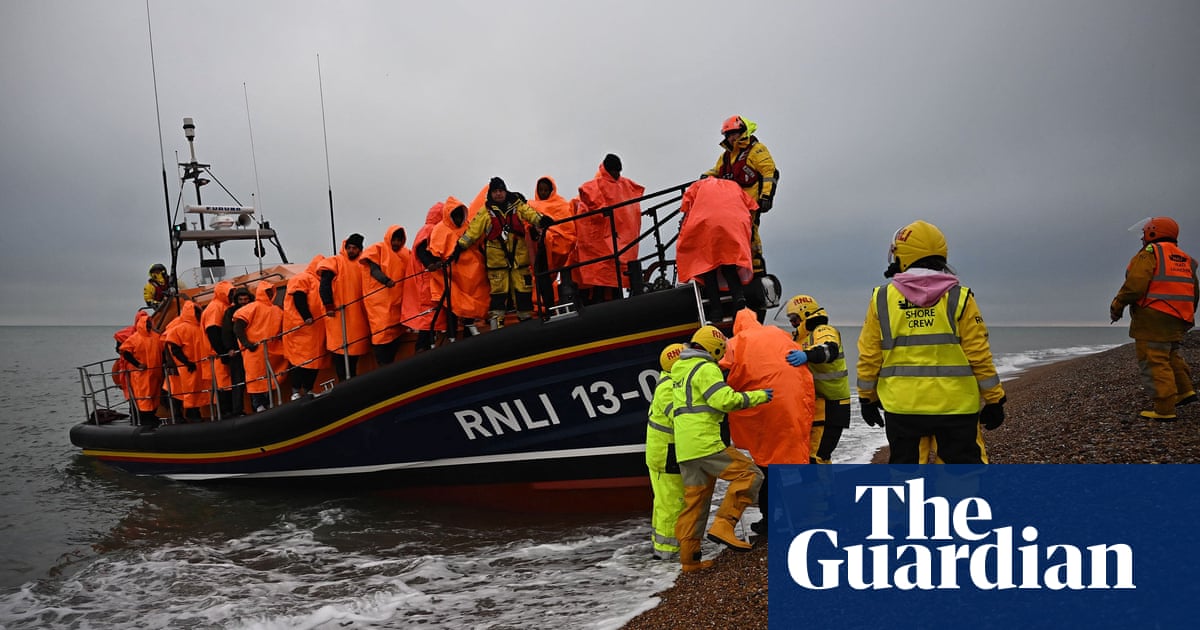
The UK would be an international outlier along with Russia and Belarus if it left the European convention on human rights, a leading law body has warned, after a senior minister signalled that the move could be an option to stop small boat crossings.
Robert Jenrick, the immigration minister, said the government would do “whatever is necessary”, even if that meant pulling out of the ECHR, the 70-year-old pan-European treaty that protects human rights and political freedoms in the continent.
His comments are an escalation of the government’s previous statements that leaving the ECHR was not an immediate step it was going to take. It has insisted that it can deliver on Rishi Sunak’s pledge to “stop the boats” within the convention.
But the Conservatives could dial up their rhetoric against the ECHR in order to create a dividing line with Labour before an election, with senior MPs telling the BBC they thought Sunak could fight a campaign pledging to leave.
The Law Society, the professional body for solicitors in England and Wales, said small boat crossings by asylum seekers “will not be tackled by leaving an extremely successful international agreement designed to protect individual rights and support political stability”.
Lubna Shuja, its president, said: “Leaving the ECHR would mean the UK would sit as an outlier in Europe, alongside only Russia and Belarus, who are already outside the convention.
“This would be using a sledgehammer to crack a nut, when the government already has a perfectly good nutcracker it can use.”
The Law Society said bringing down the case backlog for asylum applications and tackling issues with the Illegal Migration Act would be the way to address problems with the system.
Human rights groups also expressed alarm. Sile Reynolds, head of asylum advocacy at Freedom from Torture, said leaving the ECHR “will not correct any of the failings of this government that have led to the record backlog in asylum claims, or the continued loss of life in the waters around Europe”.
Charlie Falconer, the Labour peer who was justice secretary in Tony Blair’s government, says Jenrick’s suggestion was yet another example of the “deliberate undermining of the law and lawyers by the government”, following the government attacking “lefty” members of the profession for failures in their own immigration policy.
The government’s plan to send people to Rwanda for processing of their asylum claims is still facing a supreme court battle. The first flight was stopped at the 11th hour in June last year after an appeal to the European court of human rights, which ensures that the rights enshrined in the convention are upheld by its 46 signatory countries. It is separate from the EU, which the UK voted to leave in 2016.
There are already calls from some within the Conservatives to withdraw from the ECHR. Suella Braverman, the home secretary, who is also a lawyer, has previously expressed a view that the UK should leave.
On Times Radio, Jenrick would not rule out withdrawal from the convention, saying the government would do “whatever is necessary”. “You can see from the prime minister, the home secretary and myself, our total commitment to this challenge,” he said.
“That’s why we’re working on every possible front. That’s why we have produced the most comprehensive plan, I believe, of any European country to tackle this issue. And we’ll do whatever is necessary, ultimately, to defend our borders and to bring order to our asylum system.”
Pressed directly on whether that could include leaving the ECHR, he said: “We will do whatever is required, take whatever necessary action is needed.”
Later on Wednesday, a No 10 source sought to dampen the suggestion that the UK would leave the ECHR. “Our stop the boats act will deliver the changes necessary to reduce the incentives for people to risk their lives through illegal crossings while remaining party to the ECHR,” the source said.
“Our world-leading partnership with Rwanda will work alongside this as part of our plan to stop the boats.
“The court of appeal was clear that the policy of relocating asylum seekers to a safe third country for the processing of their claims is in line with the refugee convention and we remain confident in the legality of the partnership. Our focus is now on next steps and our appeal.”
Jenrick gave his assessment as he announced that the government had struck a deal with Turkey to focus on coordinated actions to “disrupt and dismantle” people-smuggling gangs.
On Tuesday night the government announced the establishment of an operational “centre of excellence” by the Turkish national police and supported by the UK. The centre would aim to strengthen collaboration between the National Crime Agency and Home Office intelligence staff based in Turkey and their Turkish counterparts, the British government said.












